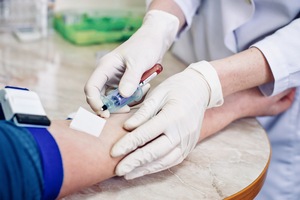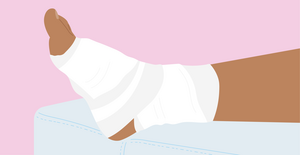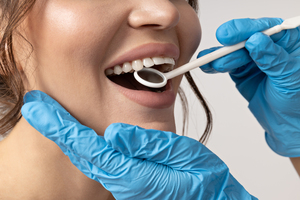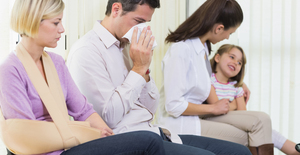Book an STD Test in College Station, TX
Own a clinic? Add your location.
Help patients book appointments with you on Solv. It's free!
7 instant-book locations

Integrity Urgent Care, College Station - Century Square
Integrity Urgent Care

Integrity Urgent Care, College Station - Jones Crossing
Integrity Urgent Care

Integrity Urgent Care, Bryan
Integrity Urgent Care

Integrity Urgent Care, Hearne
Integrity Urgent Care

Integrity Urgent Care, Brenham
Integrity Urgent Care

Quest Diagnostics
Quest Diagnostics
Self-pay pricing
Clear self-pay prices
No more surprise bills. Solv is committed to making getting healthcare as easy as buying groceries at the store, including knowing the price of care upfront.

Labcorp
Labcorp
Self-pay pricing
Clear self-pay prices
No more surprise bills. Solv is committed to making getting healthcare as easy as buying groceries at the store, including knowing the price of care upfront.
College Station MedPlus
College Station MedPlus
SignatureCare Emergency Center - College Station
SignatureCare Emergency Center - College Station
St. Joseph Express
St. Joseph Express

Baylor Scott & White Convenient Care Clinic, College Station
Baylor Scott & White Convenient Care Clinic
Tranquility Health Center
Tranquility Health Center
Any Time Analysis
Any Time Analysis
Clinical Pathology Labs
Clinical Pathology Labs

Get Well Clinic Family Health and Weight Loss, College Station
Get Well Clinic Family Health and Weight Loss
Texas Avenue Medical Clinic
Texas Avenue Medical Clinic
Clinical Pathology Labs
Clinical Pathology Labs
Lap - Band - Fills
Lap - Band - Fills

Brazos Valley Urgent Care
Brazos Valley Urgent Care
CHI St. Joseph Health
CHI St. Joseph Health
Own a clinic? Add your location.
Help patients book appointments with you on Solv. It's free!
Overview of STD Testing in College Station
Who should get tested for STDs?
Anyone who is sexually active should consider getting tested for STDs, especially if they have multiple partners or do not consistently use protection. Certain groups are at a higher risk, including young adults, men who have sex with men, and those with a history of previous STDs. It's also important for pregnant women to get tested, as untreated STDs can lead to complications for both mother and baby.
Importance of getting tested
Getting tested for STDs is crucial for several reasons. First, many STDs do not have obvious symptoms, so you could be infected and not know it. Early detection and treatment can prevent long-term health complications, such as infertility, certain types of cancer, and increased susceptibility to HIV. Regular testing also helps stop the spread of these diseases, protecting your partners and the wider community.
Std testing options in College Station, TX:
Urgent care and walk-in clinics
There are several urgent care and walk-in clinics in College Station, TX, that offer STD testing. Baylor Scott & White Convenient Care Clinic and CHI St. Joseph Health are two such facilities. Both clinics have received positive reviews and are conveniently located within the city. You can book same-day and next-day testing appointments at each through Solv’s website and mobile app.
Primary care providers
Your primary care provider is another excellent resource for STD testing. They can provide you with a comprehensive exam and discuss your sexual health in a confidential setting. If you don't have a primary care provider, there are 29 nearby locations in College Station where you can get tested.
Free STD testing and community health centers
Community health centers often offer free or low-cost STD testing. Tranquility Health Center in nearby Bryan, TX, is a good option. Remember, early detection is key, so don't let cost be a barrier to getting tested.
At-home testing
At-home STD testing kits are another convenient option. These kits can be ordered online, used in the privacy of your home, and then mailed back to a lab for analysis. Results are typically available within a few days.
Prevalence of STDs in College Station
College Station, located in Brazos County, TX, has seen a rise in STD cases in recent years, mirroring a national trend. According to the CDC, the most common STDs are chlamydia, gonorrhea, and syphilis, with young people aged 15-24 most affected. It's important to note that these numbers only represent reported cases, and the actual number of infections is likely higher.
Risk factors related to STDs in College Station
Several risk factors could contribute to the prevalence of STDs in College Station. The city is home to Texas A&M University, and college campuses often have higher rates of STDs due to factors like increased sexual activity, lack of consistent condom use, and alcohol and drug use. Additionally, lack of access to healthcare and stigma around STD testing can also contribute to higher rates. It's crucial to address these risk factors through education and increased access to testing and treatment services.
Solv has strict sourcing guidelines and relies on peer-reviewed studies, academic research institutions, and medical associations. We avoid using tertiary references.
STD Testing FAQs
Where should I get an STD test in College Station?
In a doctor's office, a health clinic, or an urgent care center, you can get an STD test. If you're experiencing symptoms, it's best to visit a doctor's office, where they can also treat you or issue you a prescription. While some College Station clinics and urgent care centers allow walk-in appointments, it's advisable to make an appointment ahead of time to prevent excessive waits.
How long does it take to get STD test results?
Various testing are required for various STDs. Depending on the type of STD test you took, you may receive your results in two to ten days. Some outcomes may be immediately available. Your doctor may be able to diagnose an STD through a physical examination. In some cases, your doctor's office may only contact you if your test results are positive.
How much does an STD test cost in College Station?
The cost of STD testing is governed by several factors, including where you are tested, the type of test you need, and if you have health insurance. Some College Station clinics may offer free testing or testing on a sliding scale based on your income. Because of the cost, don't put off obtaining an STD test. With your doctor's office, discuss the cost and payment choices. Delaying STD treatment may have catastrophic implications.
Does insurance cover STD testing in College Station?
The cost of STD testing is governed by a number of factors, including the location of the test, the type of test required, and whether or not you have health insurance. Some clinics may provide free or sliding-scale testing, depending on your income. Don't let the expense of an STD test deter you from getting one. With your doctor's office, discuss the price and payment choices. Delaying STD treatment could have catastrophic ramifications.
How do they test for STDs in College Station?
There are around 20 different forms of STDs, each with its own set of diagnostic tests. No single test exists that can detect all types of STDs. Your doctor can help you figure out which tests you'll need. In STD testing, a blood sample or a urine sample may be used. Your doctor may also take a swab from the inside of your cheek, your vaginal area, or another potentially infected place.
What STDs can be detected by a blood test?
Blood tests are used to diagnose hepatitis B, hepatitis C, herpes, HIV, and syphilis. In a laboratory, a technician examines a blood sample for antibodies that the body has produced in reaction to disease. The virus's DNA can also be detected by several blood tests. Remember that if you've recently been exposed to an STD and your body hasn't yet produced antibodies, you could test negative even if you have the disease.
Can I get a same-day appointment for STD testing in College Station?
Many College Station, TX urgent care providers offer same-day and next-day appointments, which you may book through Solv. To make healthcare more accessible to everyone, we collaborate with thousands of top-rated local providers. Our physician partners understand that waiting days, if not weeks, for an appointment isn't always the best option, and they share our commitment to simple, accessible health care.
How can I book an STD test on Solv?
To find a healthcare practitioner in your area, simply enter your location and search for "STD test" on our website. A list of providers and available appointments can be found on the following page. Choose the most convenient time and location for you. Make it clear that you've come for STD testing.
How long does an STD test take in College Station?
If you have a specific STD, inform your doctor so that the necessary test can be scheduled. Otherwise, they'll help you figure out which tests you'll need. The nurse or doctor simply needs a few minutes to get a blood sample, a urine sample, or a swab from the probable infection site.
Can I test myself for STDs at home?
Although there are several STD home tests available, not all of them are accurate. The accuracy of any STD test is determined by the quality of the sample taken. For home STD kits, a blood sample, a urine sample, or both are frequently required. Because doctors and nurses have more experience collecting samples, traditional in-office STD testing is the most accurate.
Related Searches
DNA Test in College Station, TX
Drug Test in College Station, TX
Vitamin D Test in College Station, TX
Basic Metabolic Panel in College Station, TX
Allergy Testing in College Station, TX
RSV Test in College Station, TX
Sports Physicals in College Station, TX
H Pylori Test in College Station, TX
COVID-19 Pill in College Station, TX
Pregnancy Test in College Station, TX
COVID-19 Testing in College Station, TX
Ear Wax Removal in College Station, TX
Urgent Care in College Station, TX
Strep Test in College Station, TX
Mono Test in College Station, TX
TB Test in College Station, TX
Blood Test in College Station, TX
Hepatitis test in College Station, TX
Glucose Test in College Station, TX
Lab Tests in College Station, TX
Flu Test in College Station, TX
CMP Test in College Station, TX
A1C Test in College Station, TX
Diagnostic Test in College Station, TX
Cholesterol Test in College Station, TX
Diabetes Test in College Station, TX
Urinalysis in College Station, TX
Thyroid Test in College Station, TX
DOT Exam in College Station, TX
Pulmonary Function Test in College Station, TX
Pediatric Urgent Care in College Station, TX
Aetna Urgent Care
Blue Cross Blue Shield Urgent Care
Cigna Urgent Care
COVID-19
Flu
United Health Urgent Care
» All services in College Station, TXFind STD testing
Nearby cities
Popular Brands in College Station
Everyday Healthcare, Simplified
Expert advice to help you live your best life







